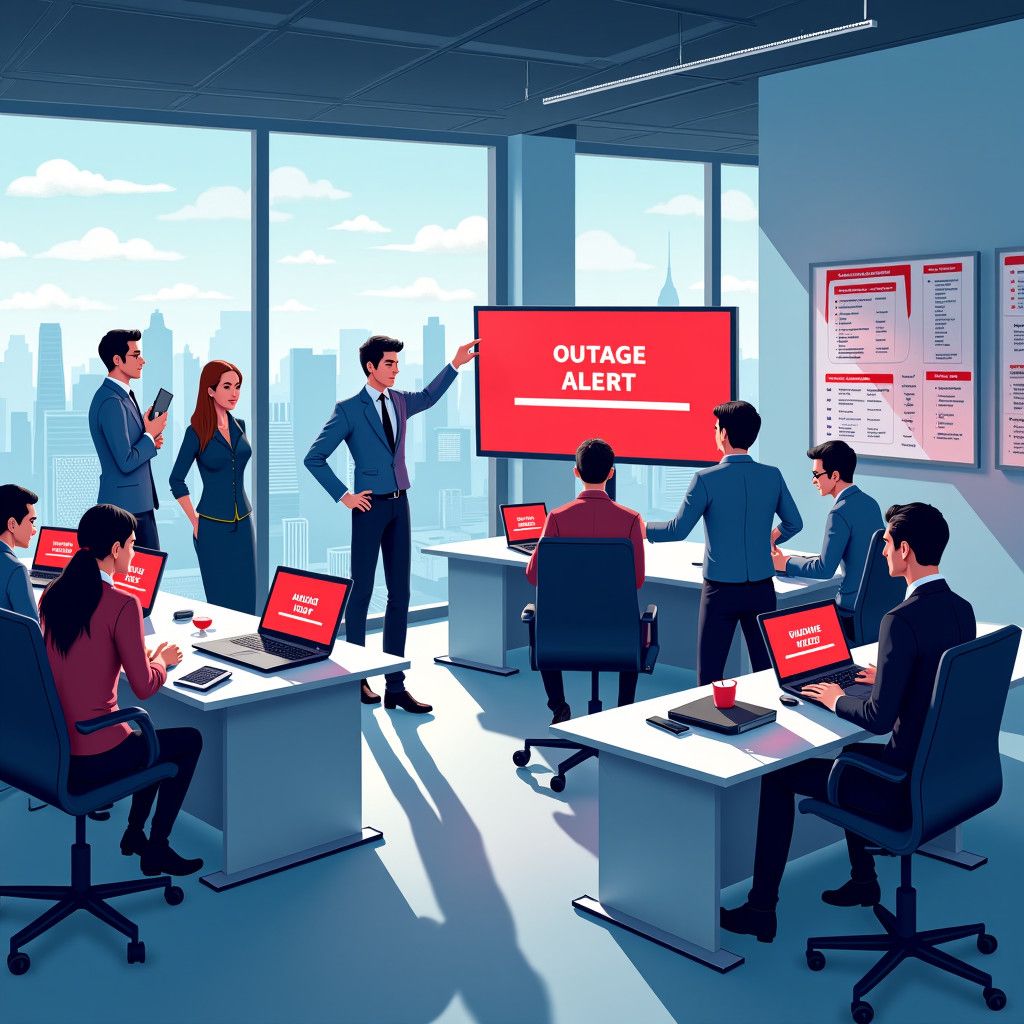The reliability of technology giants is paramount for businesses and users alike, as their services are often integral to daily operations. OpenAI, a leading AI research organization, has recently faced significant service outages, stirring concerns among its clientele. This article examines the implications of these outages and how businesses can navigate such challenges.
On December 12, OpenAI experienced its first notable outage, disrupting its widely used ChatGPT and other API services. Problems began in the early morning, heightening frustration for users who depend on these tools for everything from content creation to customer support. As the company scrambled to mitigate the issues, users vented their frustrations on social media platforms, highlighting the essential role these services play in their operational workflows.
Despite an attempt by OpenAI to rectify this disruption, service reliability became a recurring theme. A second outage occurred just two weeks later, during a peak business period. This repetition underlines a potential vulnerability in their operational framework. Reports suggest that the outages were linked to server overloads and issues identified during ongoing maintenance. These occurrences prompt critical reflection on the robustness of service architecture, especially for organizations with extensive user bases.
For businesses utilizing OpenAI’s services, these outages can lead to operational setbacks. Many companies have integrated AI-driven tools into their workflows, deploying them for tasks ranging from data analysis to generating marketing copy. In an era where efficiency and responsiveness are vital, interruptions can cost organizations not only time but also revenue.
A prime example of the real-world implications of such outages can be seen in the marketing sector. Many firms rely on ChatGPT for developing innovative content strategies, engaging with customers, or handling inquiries via chatbots. An unexpected service disruption means that these marketing maneuvers stall, potentially alienating customers who expect prompt responses. In such scenarios, businesses must have contingency plans to mitigate service disruptions. An investment in backup technologies or exploring alternative AI platforms can preserve customer satisfaction and maintain operational continuity.
Moreover, these outages reiterate the importance of having clear channels of communication with service providers. During the initial outage, OpenAI’s response time was criticized for being slower than expected. Clients benefitted from regular updates regarding the status of services, thus maintaining trust during crises. A transparent communication strategy is essential not only to mitigate frustration among users but also to provide insights into how a company handles crises.
Looking ahead, businesses should consider diversifying their AI tools to prevent reliance on a single platform. Several companies offer competitive AI solutions, such as Google’s AI and Microsoft’s offerings. By exploring a multi-platform approach, organizations can ensure that they are not wholly dependent on OpenAI’s services, effectively creating a buffer against future outages.
For startups and smaller enterprises, the impact of service outages could be even more pronounced. These businesses often operate on thinner margins, and any downtime can disrupt service levels, leading to loss of business. Aligning with multiple vendors and fostering relationships with various tech providers can enhance resilience against such disruptions. Establishing a well-rounded technology stack allows businesses, regardless of size, to adapt quickly in uncertain times.
Furthermore, businesses should also stay updated with OpenAI’s risk management strategies. Understanding the measures that OpenAI, or any service provider, is putting in place to enhance reliability can help businesses prepare better for contingencies. Keeping abreast of updates from OpenAI about their technical improvements and incident response can foster a proactive approach for businesses that operate within the AI ecosystem.
The recent outages experienced by OpenAI serve as a critical lesson in the realm of business technology. While AI platforms offer transformative potential, they must be approached with caution, particularly in terms of reliability and operational integrity. Businesses that proactively address these risks will be better positioned to navigate future challenges.
In conclusion, OpenAI’s service outages highlight the need for robust contingency strategies, diversified service reliance, and open communication channels. As companies increasingly integrate AI into their workflows, anticipating and preparing for potential disruptions will be key. Having a comprehensive strategy not only safeguards business operations but also enhances customer trust and satisfaction.












